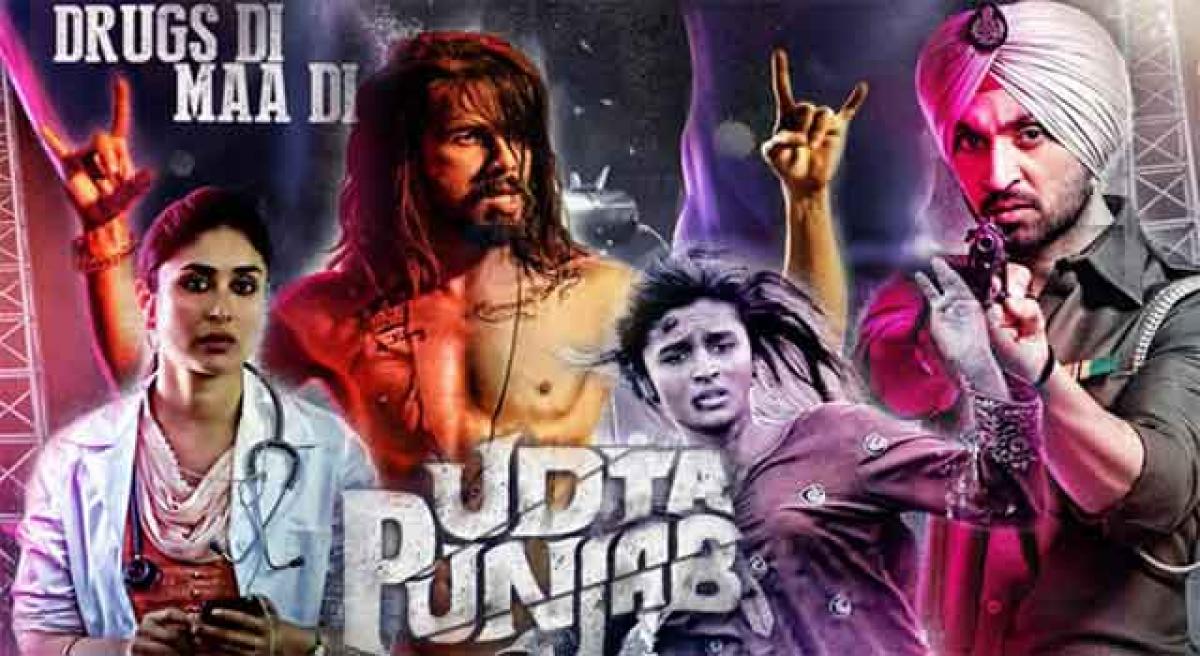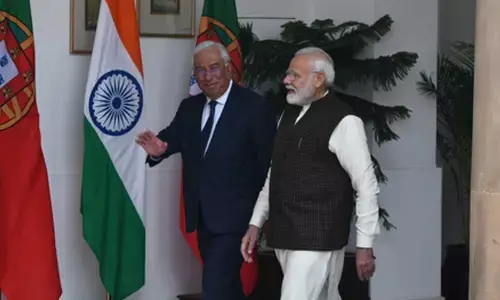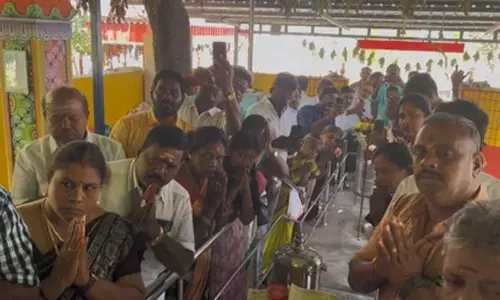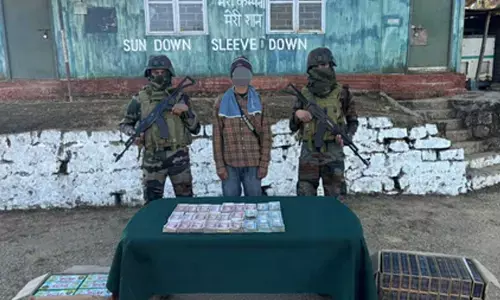Ladtha Punjab

The recent ‘Udta Punjab’ controversy has yet again brought to front how the Central Board of Film Certification (CBFC) or, Censor Board as it has come to be known as, exists in an entirely different century from not only the films it’s supposed to certify but also the audiences, for whom ostensibly this exercise is meant for.
The recent ‘Udta Punjab’ controversy has yet again brought to front how the Central Board of Film Certification (CBFC) or, Censor Board as it has come to be known as, exists in an entirely different century from not only the films it’s supposed to certify but also the audiences, for whom ostensibly this exercise is meant for.
That the CBFC has been in the news for wrong reasons is hardly surprising but never before has such an all-around clamour for a change in the way it functions from not just the film industry but also general public as well as some quarters of the government as well been so unanimously vociferous.
For a film that is supposedly based on the drug problem that has engulfed the state of Punjab, ‘Udta Punjab’s narrative from the visuals seen in the trailer of the film appear to be alchemy of gritty realism and high drama, which as anyone who has seen a single popular Hindi film would know is as necessary a trope to this trade as breathing is to life.
The CBFC is in the news, yet again, for levying 89 cuts in the upcoming film ‘Udta Punjab’. The film fraternity has come together to fight against censoring creativity of filmmakers. The Board states that the film has too many vulgar references and is showing Punjab in bad light. However, Justice SC Dharmadhikari of Bombay High Court ruled against the CBFC and ordered the release of the movie with a lone cut. Court verdict aside, has the CBFC gone too far?
While the producers of ‘Udta Punjab’, which includes Anurag Kashyap, a veteran of many similar battles with the CBFC, anticipated some resistance considering the sensitive nature of the film’s script, they were shocked to see the manner in which the CBFC reacted.
The same body that cleared the trailer of the film that more than explains the nature of things to come, now demanded a plethora of cuts which included muting certain expletives, changing the name of a dog in the film from ‘Jacky Chain’ to just ‘Jacky’ and omitting words such as ‘election’, ‘MP’, ‘MLA’ and ‘Parliament’ amongst others.
The CBFC also asked the filmmakers to remove all close-ups of drugs being injected as such shots would show the audience how drugs are consumed but it was its demand to remove all references to Punjab from the film that revealed how disconnected the two were.
‘Udta Punjab’ might be a fictional story but it is based on the documented drug menace of Punjab and while the extent of the epidemic can be questioned, its presence can’t. But the manner in which the CBFC is going out of its way to stop the audience from some kind of acknowledgement of said problem is appalling.
The job of the CBFC is to ‘certify’ films and not censor as many have come to believe. In India a film cannot be shown publicly unless it’s certified by the CBFC and the ratings range from “U” or Unrestricted public exhibition to “A” or only for adult audiences and “UA” or unrestricted public exhibition but subject to parental guidance for children below twelve years of age and “S” for specialised audiences.
Most filmmakers want an ‘U’ certificate as it doesn’t restrict the viewers but in any case besides certifying the film, the CBFC also has a set of guidelines based on which they ask for certain cuts to ensure that the film falls into one of the categories. The trouble begins when a producer is fine with an “A” or a “UA” certificate but is still not allowed to include certain words or imagery that the CBFC might find objectionable.
Take for instance a word such as ‘bastard’ or its Hindi equivalent ‘haramzada’ or even the F word in English that might be liberally used in everyday parlance in this day and age but according to the CBFC, these words are objectionable and aren’t allowed in any category of the certificate. Interestingly a letter written by the present CBFC chief and the man in the eye of the storm,
Pahlaj Nahilani, made it very clear that “double meaning any kind of words” too would not be passed but doesn’t specify what could be a double meaning word. In the early 1990s films produced by Nihilani included songs with lyrics such as “Maalgadi tu dhakka laga” and “Khada hai khada hai, Dar pe tere aashiq khada hai” but not only did he not have any trouble associating with such but they were also cleared by the CBFC with a “U” certificate.
To say that Nihalani is a misfit as the CBFC chief wouldn’t be incorrect at all. The man even had a problem with James Bond kissing a woman a tad longer than what would have been ideally acceptable. This once it’s also the manner in which Nihalani has presumably gone about in dealing with ‘Udta Punjab’ that makes it worse.
Being a producer himself Nihalani knows how bodies such as the CBFC work and the allegations of the fracas surrounding the delay in certifying the film being politically motivated only gather momentum. According to Kashyap, the CBFC never responded to their communications and purposefully delayed the proceedings in order to ensure that the producers missed the June 17 release date.
Although the Punjab government hasn’t asked for a ban on the film, there are murmurs that the incumbent government would be shown in a bad light by virtue of association between the film and reality.
Punjab’s Deputy CM Sukhbir Singh Badal has said that while it’s up to “the censor board to see whether the film meets or violates the fundamental principles of balance between freedom of expression and deliberately or inadvertently blackening the face of a state” and added that as no one at political or administrative level in the government or party had seen the film so to suggest a governmental intervention at this stage would be “absurd.”
Yet there is a looming fear that ‘Udta Punjab’ might just open a can of worms for the party and be detrimental in the upcoming elections next year.
The post of CBFC chief has always been under the spotlight and every single person who occupied the post has been hypocritical in some way or the other. The previous chief Leela Samson quit once her decision to deny a certificate to the film ‘MSG: The Messenger of God’ was overturned by the Film Certification Appellate Tribunal (FCAT), the body filmmakers can approach following a refusal by the revising committee, which is the second stage if there is no consensus on the film within the CBFC.
When Samson took over the CBFC she had said “any art form must have creative freedom, but at the same time, must be socially responsible," and while she cleared ‘PK’ without a single cut despite protests that it was hurting religious sentiments, she refused ‘MSG: The Messenger of God’ a certificate as she felt a film in which the Dera Sacha Sauda chief performed miracles and pledged to rid the society and the youth of evils like drugs and alcohol might “hurt religious sentiments”.
Similarly Anupam Kher’s tenure saw him being accused by Rakesh Sharma for not clearing ‘Final Solution’ a film that offered an insight into the 2002 Gujarat Riots, Sharmila Tagore was said to be overtly benevolent when it came to clearing ‘Omkara’ as it featured her son Saif Ali Khan, and Asha Parekh didn’t think the audiences were fit enough to watch Shekhar Kapur’s ‘Elizabeth’.
A few cuts from the list CBFC proposed
- Delete sign Board of Punjab in the beginning
- Delete Punjab, Jalandhar, Chandigarh, Amritsar, Tarantaran, Jashanpura, Ambesar, Ludhiana and Moga to be deleted from background and dialogue wherever it occurs.
- From song no. 1 delete the word ‘Chittave’ and ‘Harami’ everywhere.
- From song no. 2 delete ‘Tom di cock jevhe chitti chitti cock’ and ‘coke cock’ in the entire song.
- Delete the word ‘Election’, ‘MP’, ‘Party’ from party worker, MLA, Punjab, Parliament.
- Delete the name of dog as ‘Jacky Chain’.
As the line between CBFC certifying films and censoring/banning them gets finer, the difference between a CBFC chief or the body members’ mindset and the general public gets more pronounced. Does the CBFC really think ignoring or not addressing something will make it go away? Years ago when the legendary writer-filmmaker Vijay Anand in the capacity of CBFC chief suggested the introduction of an “X” rating many believed that he was championing the case of pornographic films to be publically shown.
There was a furore in the Parliament and Anand ended up resigning. While it’s true that Anand’s idea could have been inspired by the fact that as certain places showed films with pornographic inserts it would be better to certify them in order to keep a check or control the access to such, but the possibility of the ambit of certification increasing, too, could have been initiated.
But is the whole thing centered around the notion that proper certification is all that is needed? Should there, then, be a freedom to exhibit anything, even pornographic films as long as they are correctly certified? Perhaps not. But makeshift or knee-jerk reactions in the name of freedom of expression won’t help much either.
There aren’t any clear-cut answers as what an artist gets to a public domain is always nuanced, therefore, unflagging support or extreme opposition can never be the solution. What is needed is a think-tank that can look into this issue fairly and go beyond superficial changes.
The film industry and the common viewer both are also somewhere guilty of the situation that ‘Udta Punjab’ has brought to pass. A few weeks ago when Vivek Agnihotri’s ‘Buddha in a Traffic Jam’ released there was a near-blackout of the film in mainstream media outlets to the extent that some well-known critics skipped reviewing the film.
On a personal note, when this writer objected to rapper Yo Yo Honey Singh’s much-publicised performance days after the gruesome Delhi gang rape of December 2013, especially in the light of his offensive lyrics (some that even glorify rape) creative freedom was cited as an excuse for the blatant misogyny.
It was only after people like Vir Sanghvi and Nilanjana Roy started an online signature campaign that a leading hotel chose to cancel the said concert but one wonders if they see the reaction to ‘Buddha in a Traffic Jam’ and ‘Udta Punjab’ in the same light.
On the face of it, nothing much would change if Nihalani were thrown out or even if the suggestions of the recent Shyam Benegal led censor revamp committee whose first being that the Board certifies films instead of censoring them were implemented, as the core issue is two-fold.
Ideally, the Cinematograph Act, 1952 from where the stipulations of film certification originate, needs to be updated, as the terms laid therein seem archaic now. Like many of the laws that the newly independent India implemented were, for the want of a better word, influenced by the way the British framed them, the Cinematograph Act, 1952, too, in some way followed the same principles and simply replaced the enemy of the crown with the enemy of the nation’s sovereignty.
It’s been six decades since the Act was made a law and a lot has changed since and although it’s a tall order, it’s more than time to starting thinking about it. While the jury’s still out on that one, the thing that can help in the meantime is a change in the attitude of people who form the CBFC or at least a change in the basic outlook.
Nihalani and ilk have no trouble clearing sexist and misogynist fare such as ‘Maastizaade’ or ‘Kya Kool Hai Hum 3’ without asking for many changes in the name of creativity but have trouble with James Bond kissing for longer or even someone referring to Mumbai as ‘Bombay’ or a film like ‘Unfreedom’ that was based on homosexual relationships.
In 2014 the CBFC found a shot of women’s undergarments in the Kangana Ranaut starrer ‘Queen’ troublesome and suggested blurring the shot as the image of a bra was found to be vulgar. Truth, when expressed simply, holds more power that one can imagine and truth be told, the CBFC must recognise that the world as well as the audience both has changed. It’s time someone ensured that take both a little seriously.
By: Gautam Chintamani














